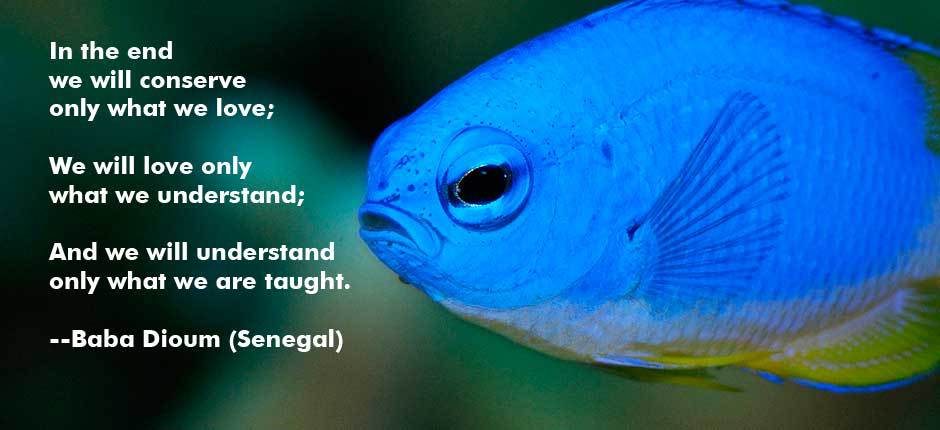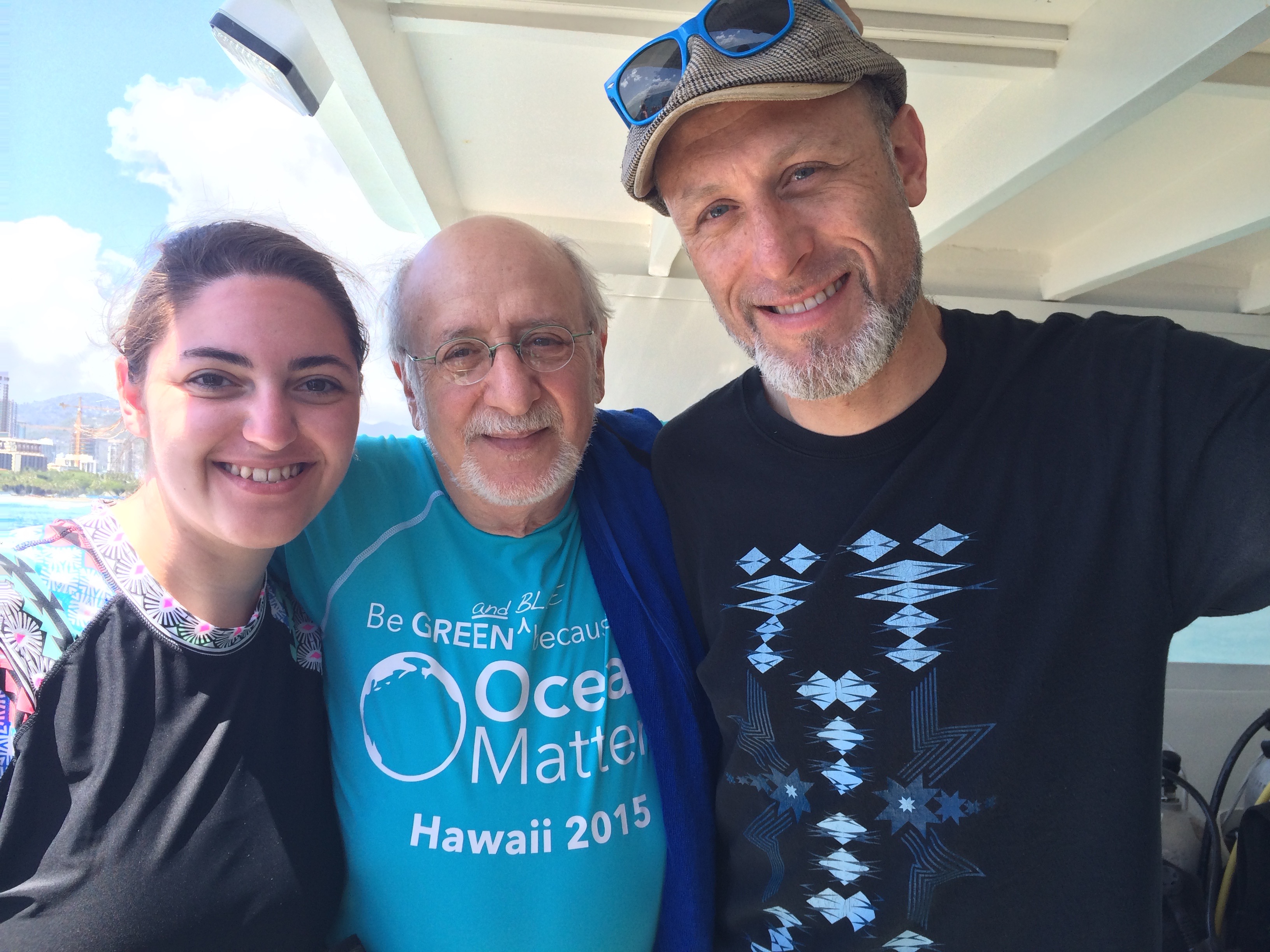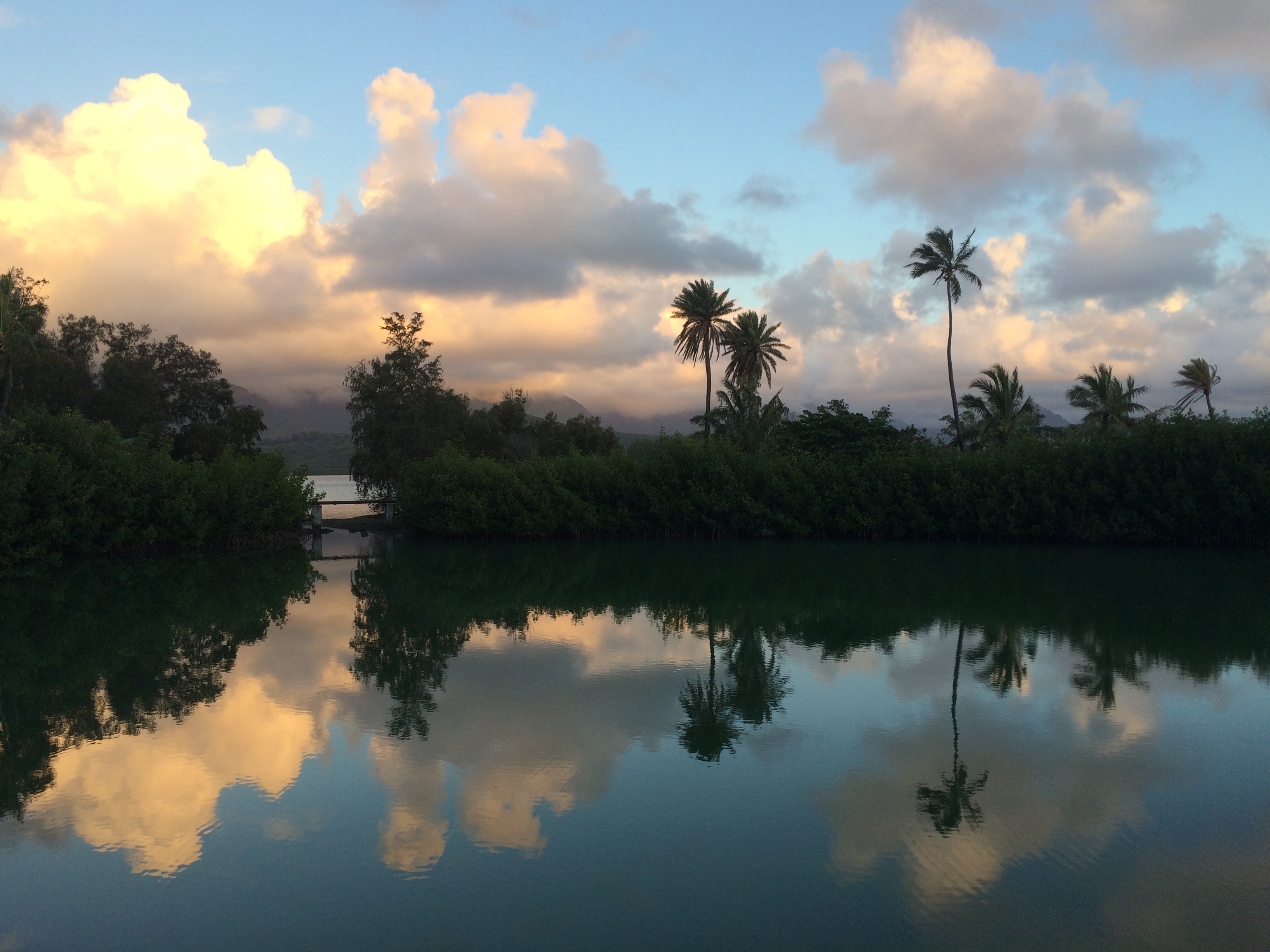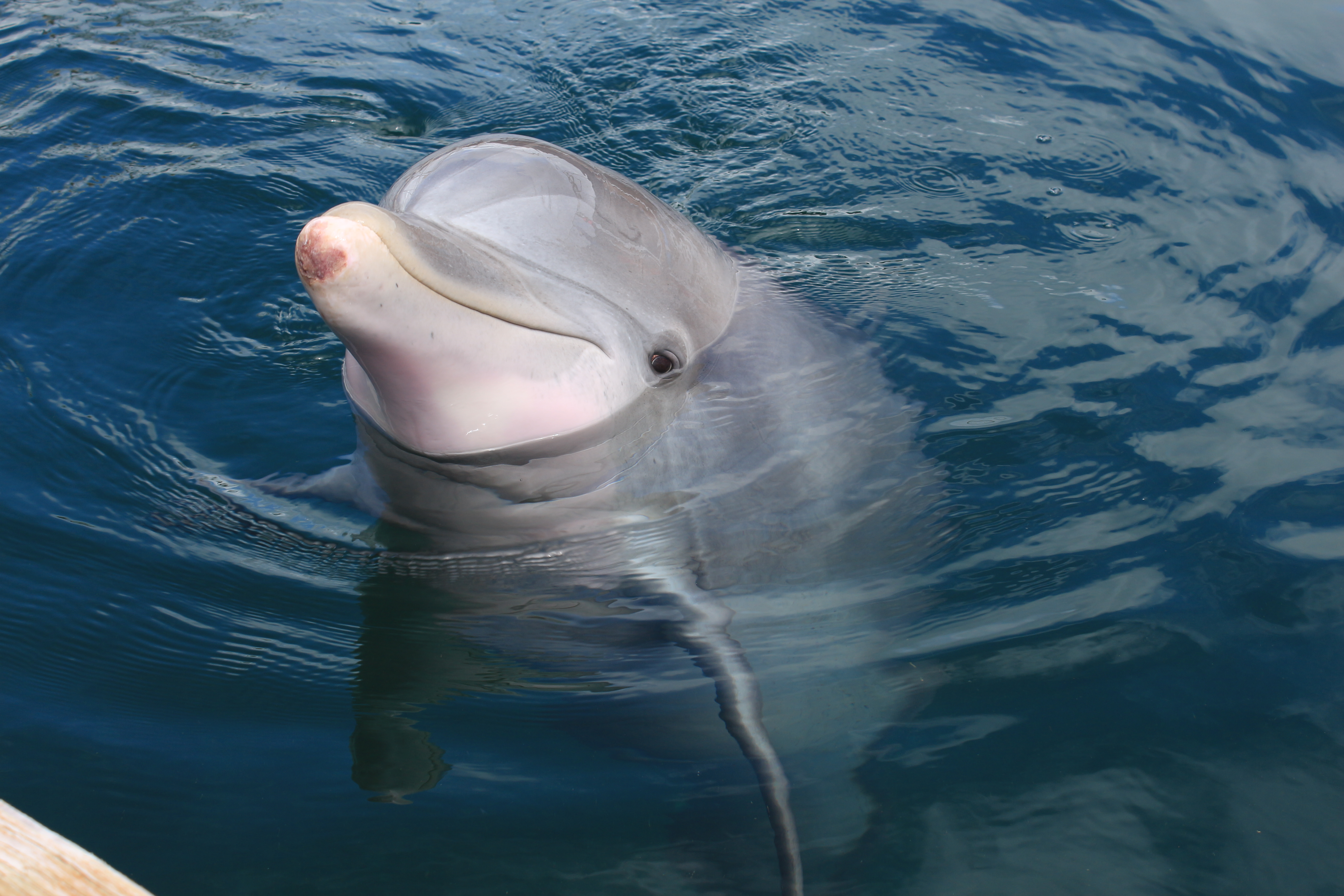
An Interview with Ocean Matters Scholarship Recipient Anya George
Anya George (on left) was 19 when she attended our Hawaii Seeds of Sustainability program supported by our generous donors. Ocean Matters Executive Director Laura Parker Roerden recently followed up with Anya to find out how the experience has impacted her life a year later.
Everything affects everything else. Environmental problems are more on my radar now and I project my daily actions, both negative and positive, forward to the effect I may have on the environment.
OM: What did you hope to accomplish by coming on the Ocean Matters Seeds of Sustainability Trip to Hawaii?Anya: I hoped the Ocean Matters trip would help me figure out whether or not I wanted to pursue marine biology as a major in college and as a career path. I thought it would allow me to see some opportunities that exist for people in the field and also to explore the ecosystems beyond where I live, near the North-Western Atlantic Ocean. I also saw it as an opportunity for an adventure and to do something out of my normal routine. Having never been to a sleep-away camp and not yet gone to college, it was a chance to prove (mostly to myself) that I could successfully be away from home before moving into college that fall.
OM: How did coming on the trip affect your view of environmental problems facing us?
Anya: Being on the island and interacting with the coral, sea turtles, basalt beaches, natural springs, and ancient fish ponds, and hearing stories of the significance of all ecosystems and the interconnected web on Earth made me more nature-aware. Awareness is the first step to fixing any problem.
I also saw the immense effect tourism can have on nature. Tourism can be the best way to see nature and appreciate it, but it can be detrimental as well. Chemicals in some sunscreens on beach-goers, the insane amount of plastic in the ocean, trash on the beaches, high-rise hotels on the beach, etc. is of a high concern to me. I also wasn’t really aware, until I went snorkeling, that if snorkelers and divers step on coral, it dies. Details like that are not necessarily on the minds of people who haven’t seen it firsthand. We learned that it’s possible to travel without having a huge footprint by using reef safe sunscreen, reusable water bottles, not touching the coral, etc.
Listening to the stories from indigenous Hawaiians allowed me to feel how connected humans are to the land and the ocean and how we are all one. Everything affects everything else. Environmental problems are more on my radar now and I project my daily actions, both negative and positive, forward to the effect I may have on the environment.
. . .people need to make a connection with themselves and nature in order to care about it enough to be willing to do what it takes to change the world and realize how significant Aloha ʻĀina (love of the land) truly is and show the Earth that you care.
OM: How did coming on the trip affect your view of the possible solutions to those problems?
Anya: The significance of ‘ohana’ (Hawaiin for family and togetherness) was reinforced with everything we did. Coming on the trip was very eye-opening for me. It was my first time snorkeling, SCUBA diving, eating local food for every meal, drinking from one of the freshest springs on Earth deep in a cave, seeing how natives fished, etc. I think more people need experiences like these. Climb a mountain. Kayak to a sand bar and play in the ocean. SCUBA dive. Let the rain wake you up and go for a walk with the rising sun. Look for life, from tiny seahorses to huge expanses of coral. Listen to the wind that rattles the palm leaves and the birds singing in the banyan trees. Open your mind to the beliefs and traditions of others. Find yourself and your place in all this. My point is that people need to make a connection with themselves and nature in order to care about it enough to be willing to do what it takes to change the world and realize how significant Aloha ʻĀina (love of the land) truly is and show the Earth that you care.
Some tangible solutions are to bring a reusable water bottle rather than buying a plastic one. Say no to plastic bags. In the ocean they look like jellyfish that sea turtles eat. Put that paper in the recycling instead of just tossing it in the trash because it’s easier for you in the moment. Be conscious enough to say no to a plastic straw. I think solutions are there but it’s going to happen through many tiny actions when people come together and realize how much of an impact, both negative and positive, they can have. There isn’t going to be one overwhelming solution to the problems facing the ocean and the planet.
OM: Did coming on the trip change you (attitudes, behaviors, convictions) in any way?
I now know I can do anything if I believe in myself.
Anya: Yes, in more ways than I can possibly express with words!! If I hadn’t received a scholarship I wouldn’t have been able to come. Never having been away from home for more than a night at a time, I wasn’t sure how a 12-hour plane ride alone and a week on an island in the middle of the Pacific with strangers would be. I almost didn’t come on the trip, but once I realized my hesitation was because I was scared, I knew I had to go to prove to myself that I could do it. Now I try to take every fear and conquer it. I now know I can do anything if I believe in myself.
Before the trip I thought I was convinced I was going to get a degree in marine biology. What I found was that I have a passion not for marine biology exclusively, but for the interaction of people and nature. The history of native cultures and how they interacted with nature fascinates me. Jason, from Hokulea, conveyed the connection between the Hawaiian people and the ocean. Just as Noel connects people to people and people to the land through food, Peter Yarrow through music, and Ocean Matters by literally bringing the luckiest people in the world to new places and providing an undeniable experience, I want to find my passion and be able to provide connection to the beauty and spirit of the land in my own way.
OM: What did you like most about the trip?
Anya: There’s no way I can pick just one thing! I liked the freedom to explore that we had while still being on a structured trip. The daily informative activities like lectures from the Hawaii Institute of Marine Biology (HIMB) and Hokulea; the hands on activities like shark feeding and dolphin petting, and the storytelling from elders were so fun and added so much to the trip. Dinner at sunset on the deck on Coconut Island couldn’t have been more beautiful with everyone coming together after a day of activities.
OM: Would you want other young people to have this experience and if yes, why?
Anya: Absolutely. Not a day goes by that I don’t think of this trip and see its impact on me. Seriously! The memories, the friends made, and the feeling of connecting to the land and the others on this trip will be something I will never forget. It gave me such confidence and independence. Since the trip, I’ve found numerous interests to pursue. The things we got to do are so unique to this trip. Nowhere else have I had the chance to listen to native storytellers, see an ancient fish pond, pet a dolphin or a false killer whale, make great friends in only one week, and learn from people who have seen and done so much more than I have.
In this day of cell phones and constant connection, young people need a break from that. On this trip I couldn’t bring myself to check Facebook, text friends, call home or even take many pictures. I never paid attention to what day it was or how many more days we had before going home. I’ve never been more in-the-moment than on that trip and never have I felt that I was exactly where I was supposed to be any more than during that week.
OM: How has coming on the OM experience affected your education and/or career goals?
Anya: I was hoping this trip would confirm that I wanted to go into marine biology, but instead it opened my eyes to the fact that I haven’t explored enough to know what I want to do and that I’m interested in so much more than just marine biology, which is just as valuable an insight. I’m currently at UNH majoring in Earth Science. I’m considering focusing in geology or volcanology, which could potentially bring me back to Hawaii in the future.
By supporting young people to follow their passions, you’re giving them the chance to improve themselves and empowering them to change the world.
OM: Why should a funder help support other young people for an Ocean Matters experience?
Anya: The number one reason I would give to support young people for an Ocean Matters experience is that it’s life changing.
What you get out of investing in personal growth is not measurable. The lasting support and impact I’ve had from the people and experiences associated with Ocean Matters is incomparable. By supporting young people to follow their passions, you’re giving them the chance to improve themselves and empowering them to change the world. If it had not been for the funders who made my scholarship possible, I couldn’t have gone on this trip and I wouldn’t be who I am today: someone who is now even more passionate and committed to solving our environmental problems.
___________
If you’d like to help support a deserving young person for an Ocean Matters scholarship or support young people in making positive change on issues effecting the ocean in their communities, please consider a fully tax-deductible donation to Ocean Matters. Because not only do young people matter, but your support does too! If you’d like to know more about our work, please subscribe to our blog via our homepage. Thank you!
UXBRIDGE MA 01569-1474
EIN:273543879



